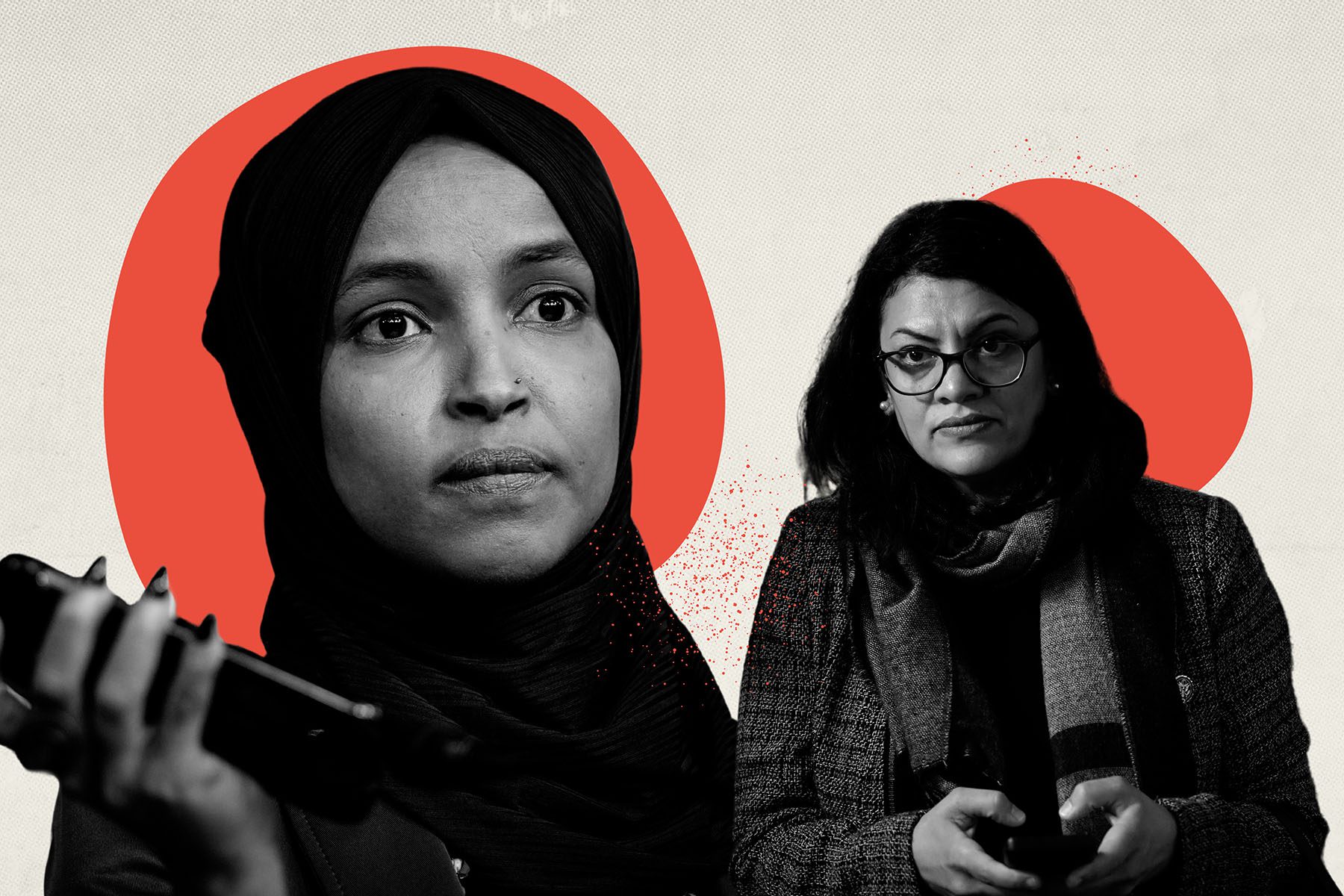Searches for prominent women in politics on Instagram and TikTok ahead of the 2022 midterms produced abusive hashtags referencing the women, according to a new study from the Institute for Strategic Dialogue (ISD), a think tank that studies online extremism and disinformation.
The study, first shared with The 19th, demonstrates how abusive hashtags — even those with a small number of posts associated with them — gain visibility on social media platforms and fuel gendered hate toward high-profile women in politics.
“We at ISD have been looking at politicized misogyny for quite a while because it has emerged as a key political tactic, particularly during elections,” ISD research manager Cécile Simmons, one of the report’s co-authors, told The 19th.
Simmons said that abusive hashtags kept popping up in researchers’ monitoring of social media content, leading them to want to take on “a more systematic study into hashtags associated with prominent women in politics.”
The researchers analyzed the top 10 recommended hashtags that came up when searching the names of 12 women candidates and officials, seven Democrats and five Republicans, on Instagram and TikTok in the days leading up to the 2022 midterms.
The researchers chose the 12 women according to party affiliation, racial diversity and the size of their following and reach on social media to ensure a representative sample. They then coded the top 10 hashtags, phrases and search terms that organize the top trending content pertaining to specific topics as abusive or not abusive.
“From that, we tried to unpack how it was for different female politicians, regarding political affiliation, but also taking a two-platform approach,” said Zoé Fourel, an ISD researcher who co-authored the report with Simmons.
Searches for all 12 women officials on Instagram yielded at least one abusive hashtag, the study found. TikTok recommended fewer abusive hashtags on balance than Instagram — but at least one abusive hashtag came up in searches for 11 out of 12 women candidates included in the study.
The researchers found not just abusive hashtags but also abusive content in text, video and audio forms attacking women candidates with gendered and sexualized insults.
“There’s certainly a concerted effort to use hashtags to boost the visibility of abusive content targeting women candidates,” Simmons told The 19th.
TikTok and Meta, Instagram’s parent company, have terms of service and community guidelines prohibiting hate speech, bullying and harassment, including abuse based on protected characteristics like gender, race and sexual orientation.
TikTok pointed to the platform’s existing community guidelines prohibiting hateful content and behavior in response to a request for comment. Meta did not respond to requests for comment.
“There have been lots of commitments to helping protect women online during elections and at critical times,” Simmons said. “But what we found is that platforms are really falling short of enforcing their own terms of service.”
One major revelation from their study was that platforms recommended abusive hashtags referencing women officials even with very few posts — sometimes fewer than 10 or 15 — associated with those hashtags.
“It was quite unclear why these hashtags were prominently featured,” Simmons said. “This is where there is a sort of lack of understanding and lack of transparency from platforms about the curation of content and how certain content is recommended to social media users.”
Here’s how the data broke down by political party and number of hashtags coded as abusive.
Republican women:
- Rep. Majorie Taylor Greene of Georgia: Eight out of the top 10 recommended hashtags on Instagram and four out of 10 hashtags on TikTok
- Rep. Elise Stefanik of New York: Six out of the 10 top hashtags on Instagram and one of the top 10 hashtags on TikTok
- Sen. Marsha Blackburn of Tennessee: Half of the top 10 hashtags on both Instagram and TikTok
- Rep. Lauren Boebert of Colorado: Half of the top 10 hashtags on both Instagram and TikTok
- Rep. Liz Cheney of Wyoming: two of the top 10 hashtags on Instagram and one of the top hashtags on TikTok
Democratic women:
- House Speaker Nancy Pelosi of California: Six out of 10 top hashtags on Instagram and two out of 10 top hashtags on TikTok
- Michigan Gov. Gretchen Whitmer: Five of the top 10 hashtags on Instagram and three of the top 10 hashtags on TikTok
- Rep. Rashida Tlaib of Michigan: Five of the top 10 hashtags on Instagram and one of the top TikTok hashtags
- Rep. Ilhan Omar of Minnesota: Four of the top 10 hashtags on Instagram and one of the top 10 hashtags on TikTok
- Admiral Rachel Levine of the Department of Health and Human Services: Three of the top 10 hashtags on Instagram and one of the top hashtags on TikTok
- Vice President Kamala Harris: Two of the top 10 hashtags on Instagram and one of the top hashtags on TikTok
- Rep. Alexandria Ocasio-Cortez of New York: One of the top 10 hashtags on Instagram and none of the top hashtags on TikTok
Women politicians from both parties faced about the same amount of gendered and sexualized insults in the content analyzed in the study. But the nature of the abuse, Simmons noted, was “quite different.” Republican women were more likely to be targets of content accusing them of being treasonous, while Democrats were more likely to face identity-based attacks.
“Republican women tended to be targeted with treason-based and political abuse, whereas people like Ilhan Omar, [Ocasio-Cortez] and others were targeted with content that suggested they’re not American and that they don’t belong in the U.S.,” Simmons said.
The researchers also underscored that fewer abusive hashtags associated with a woman politician don’t translate to a lower volume of abusive content, especially regarding women of color and LGBTQ+ women. Fourel said their findings “demonstrated the importance of really adopting an intersectional perspective.”
“We did see quite vile abuse against Ilhan Omar and also Rachel Levine,” Fourel added. “The number of hashtags, when you look at just the numbers, were maybe less in terms of being abusive. But the posts, when we were looking at those abusive hashtags, were almost systematically abusive.”
All three abusive Instagram hashtags targeting Levine, a transgender woman serving as an official in the Biden administration, were explicitly transphobic. The top 10 recommended Instagram hashtags for Omar and Tlaib, who are Muslim, included hashtags referring to the women as “terrorists” and anti-Semites.
Instagram posts including abusive hashtags referencing Pelosi and Omar often went hand-in-hand with anti-vaccine hashtags and hashtags referencing the QAnon conspiracy theory, underscoring how misogyny, including towards high-profile women in politics, is used to bolster other extreme views, the study found.
“What we found is that certainly these hashtags appeared in posts that were labeled by platforms as containing disinformation and conspiratorial content,” Simmons said.
Simmons and Fourel said that meme-based, image-based and audio-based forms of abusive content — as opposed to abusive language in captions, for example — may be harder to detect by the platforms’ content moderation systems.
-
More from The 19th
- ‘Where is Nancy?’: How threats against women in power are tied to threats against democracy
- A state senator posted a video of herself twerking. Then came the harassment and death threats.
- What Sen. Marsha Blackburn’s questions this week revealed about the GOP, gender and messaging
“We also see that malign actors are very good at bypassing content moderation and adapting as well to platforms’ moderation policies,” Simmons said, adding that “more subtle forms of abuse” like disinformation and “innuendos” often accompany explicitly gender-based and sexualized content.
Online abuse and vitriol directed at women officials can have real-world consequences. Harassment and hate can deter women, especially women of color, from running for office, the researchers noted, and fuel the larger, growing problem of political threats and violence.
Members of Congress and top women in elected office have experienced a steady rise in threats in recent years, punctuated by the January 6 insurrection.
This summer, a man with a pistol was arrested outside the home of Democratic Rep. Pramila Jayapal of Washington and charged with felony stalking for making threats against her. Multiple men were also convicted earlier this year in state and federal court for their roles in a plot to kidnap Whitmer.
And days before the 2022 election, Pelosi’s husband, Paul Pelosi, survived a brutal attack by an intruder who broke into the couple’s San Francisco home in the middle of the night, reportedly shouting, “Where’s Nancy?” The assault, which followed years of political attacks villainizing Pelosi, again highlighted the dangers of weaponized misogyny and sexism in the political arena.
The researchers cautioned that while not all real-life instances of violence are rooted in the digital realm, high volumes of hateful content online can normalize and feed abuse toward women politicians in the real world.
“We can’t necessarily establish the causality, but there is a risk,” Simmons said. “That is our concern, really, that online content can lead to offline violence.”







